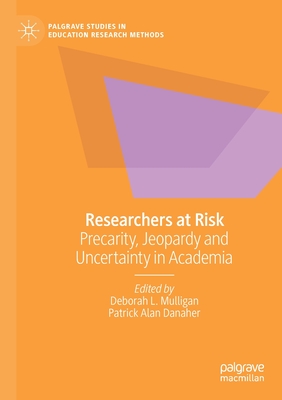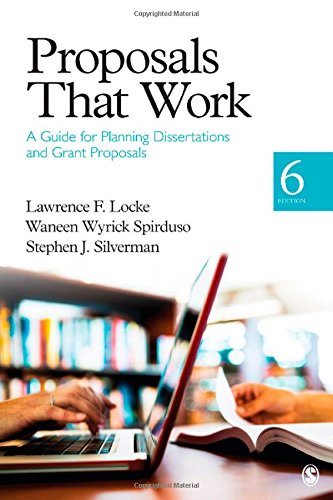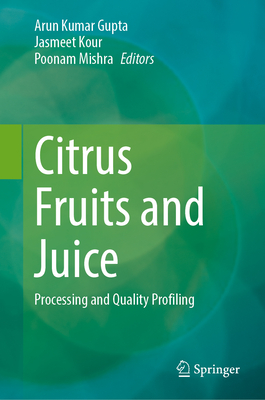图书简介
This book explores the phenomenon of researchers at risk: that is, the experiences of scholars whose research topics require them to engage with diverse kind of dangers, uncertainties or vulnerabilities. This risk may derive from working with variously marginalised individuals or groups, or from being members of such groups themselves. At other times, the risk relates to particular economic or environmental conditions, or political forces influencing the specific research fields in which they operate. This book argues for the need to reconceptualise – and thereby to reimagine – the phenomenon of researchers’ risks, particularly when those risks are perceived to affect, and even to threaten the researchers. Drawing on a diverse and global range case studies including Aotearoa New Zealand, Australia, Balūchistān, Cyprus, and Germany, the chapters call for the need to identify effective strategies for engaging proactively with these risks to address precarity, jeopardy and uncertainty. Deborah L. Mulligan researches in the field of gerontology, specifically with older men and suicide ideation. She is interested in community capacity building through examining the sustainability of particular men’s groups with male-only membership, and also in ethics and reciprocity when conducting research with marginalised groups. Patrick Alan Danaher is Professor of Educational Research and Acting Deputy Head of the School of Education at the University of Southern Queensland, Australia. He is also currently an Adjunct Professor in the School of Education and the Arts at Central Queensland University, Australia. He is also currently an Adjunct Professor at Central Queensland University and James Cook University, both in Australia, and Docent at the University of Helsinki, Finland.
Chapter 1. Conceptualising Researchers’ Risks and Synthesising Strategies for Engaging with those Risks: Articulating an Agenda for Apprehending Scholars’ Precarious Positions; Deborah L. Mulligan and Patrick Alan Danaher.- SECTION I. Risks Related to the Internal Dimensions of Researchers (Researchers’ Identities).- Chapter 2. Still Anonymous: Stigma, Silencing and Sex Work in Australia; Dr Anonymous.- Chapter 3. “Punctuation, Pause, Next Slide, Please”: The Risks of Research and Self-Disclosure in Australia and the United States; Dawne Fahey and Deborah Cunningham Breede.- Chapter 4. Reconstructing Academic Identities at Risk: Conceptualising Wellbeing and Re-imaging Identities on Cyprus and in Australia; Irina Lokhtina and Mark A. Tyler.- Chapter 5. When Faith is on the Line: Exploring the Personal Risks and Rewards of Transformative Learning; Rian Roux.- Chapter 6. The Risky Responsibility of Doctoral Writing as Grief Work: Lessons Learnt whilst Journeying with Trauma in Australia; Deborah L. Mulligan.- SECTION II. Risks Related to the External Dimensions of Researchers (Researchers’ Professions).- Chapter 7. “No Future for You”: Economic and Mental Health Risks in Young Spanish Researchers; Israel Martínez-Nicolás and Jorge García-Girón.- Chapter 8. The Risks of Precarity: How Employment Insecurity Impacts on Early Career Researchers in Australia; Lara McKenzie.- Chapter 9. How to Make the Cut in Academia: Managing the Uncertainty of Time as a Necessity to Having a Research Career in Germany; Jochem Kotthaus, Karsten Krampe, Andrea Piontek and Gerrit Weitzel.- Chapter 10. The Need to be a Leader of Research in the United States: Take the Risk and Move Beyond Your Opponents; David B. Ross, Gina L. Peyton, Vanaja Nethi and Melissa T. Sasso.- SECTION III. Risks Related to the Research Topic (Subject Matter).- Chapter 11. “God in the First Place – My First Talk and Dinner with a Salafi Group in Germany: What They Talked about’ and How I Dealt with the Risk”; Gerrit Weitzel.- Chapter 12. Doing Feminist, Multispecies Research about Love and Abuse within the Neoliberalised Academy in Aotearoa New Zealand and Australia; Nik Taylor and Heather Fraser.- Chapter 13. Irony Sandwich: Reflections on Research Silencing from an Australian Silenced Researcher; Jacqui Hoepner.- Chapter 14. Embracing the Knot: The Importance of Personal Risk-Taking within Intercultural Research in Aboriginal Australia; Susan Janelle Moore.- SECTION IV. Risks Related to the Research Setting (Conflict-Laden Locations.- Chapter 15. “Horrified by the Experience”? Reflections on a Pakistani Organisation’s Feedback about Doctoral Research Findings; Syed Owais.- Chapter 6. Where the Map Turns Red: The Multiple Expressions of Risk in Ethnographic Research in Balūchistān; Paola Colonello.- Chapter 17. The Ethics of Ethics: A Help or Hindrance When Conducting Sensitive Research with Australian Veterans?; Nikki Jamieson.- Chapter 18. Friend or Foe: The Perils of Conducting Research on Moral Injury in an Australian Veteran Population; Anne L. Macdonald.- Chapter 19. Activist or Advocate? Redefining Scholarly Risk in a West African Research Context; Zibah Nwako.- Chapter 20. Dangerous Decisions: The Precarity of Real-World Research – A Provocation; Deborah L. Mulligan.- Chapter 21. Reconstructing Researchers at Risk and Risky Research: Some Answers to the Organising Questions; Deborah L. Mulligan and Patrick Alan Danaher.
Trade Policy 买家须知
- 关于产品:
- ● 正版保障:本网站隶属于中国国际图书贸易集团公司,确保所有图书都是100%正版。
- ● 环保纸张:进口图书大多使用的都是环保轻型张,颜色偏黄,重量比较轻。
- ● 毛边版:即书翻页的地方,故意做成了参差不齐的样子,一般为精装版,更具收藏价值。
关于退换货:- 由于预订产品的特殊性,采购订单正式发订后,买方不得无故取消全部或部分产品的订购。
- 由于进口图书的特殊性,发生以下情况的,请直接拒收货物,由快递返回:
- ● 外包装破损/发错货/少发货/图书外观破损/图书配件不全(例如:光盘等)
并请在工作日通过电话400-008-1110联系我们。
- 签收后,如发生以下情况,请在签收后的5个工作日内联系客服办理退换货:
- ● 缺页/错页/错印/脱线
关于发货时间:- 一般情况下:
- ●【现货】 下单后48小时内由北京(库房)发出快递。
- ●【预订】【预售】下单后国外发货,到货时间预计5-8周左右,店铺默认中通快递,如需顺丰快递邮费到付。
- ● 需要开具发票的客户,发货时间可能在上述基础上再延后1-2个工作日(紧急发票需求,请联系010-68433105/3213);
- ● 如遇其他特殊原因,对发货时间有影响的,我们会第一时间在网站公告,敬请留意。
关于到货时间:- 由于进口图书入境入库后,都是委托第三方快递发货,所以我们只能保证在规定时间内发出,但无法为您保证确切的到货时间。
- ● 主要城市一般2-4天
- ● 偏远地区一般4-7天
关于接听咨询电话的时间:- 010-68433105/3213正常接听咨询电话的时间为:周一至周五上午8:30~下午5:00,周六、日及法定节假日休息,将无法接听来电,敬请谅解。
- 其它时间您也可以通过邮件联系我们:customer@readgo.cn,工作日会优先处理。
关于快递:- ● 已付款订单:主要由中通、宅急送负责派送,订单进度查询请拨打010-68433105/3213。
本书暂无推荐
本书暂无推荐















